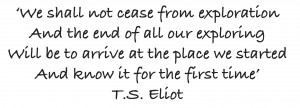Psychosynthesis Counselling and Psychotherapy
Psychosynthesis is a holistic approach to counselling and psychotherapy, 
which recognises that just as past suffering can prevent us from living fully in the present, so can suppression of our unique potential, which brings the capacity for healing and change. It combines exploring the past and painful experiences, with working with hopes, dreams and aspirations. It aims to develop greater awareness and freedom of choice and is based on the belief that we are always growing to become more truly who we are.
Establishing a safe and trusting relationship between client and therapist, where you feel free to bring whatever you wish, is an important part of that work – and is more important than the use of any particular techniques. The work may involve just talking. It can also include the use of images or art forms, visualisations, working with dreams, subpersonalities and paying attention to the feelings in the body, depending what seems appropriate or feels right to you.
It can be helpful in dealing with unexpected life events, crises, dilemmas or a deeper exploration of how past events may be causing suffering or blocks in your present life, which prevent you from living to your potential.
It is also helpful in dealing with specific issues such as: depression, anxiety, stress, personality issues, mid-life crisis, transitions, redundancy, loss, grief and bereavement, spiritual awakening or crisis, loss of meaning, crisis of identity, addictions, abuse, childhood or current trauma, relationship difficulties.
Psychosynthesis offers a framework for personal growth as well as a model for understanding suffering. It can help a person to understand the meaning of their human life within the broader context of synthesis – the drive towards harmony in all relationships, whether with one’s own self, others or between individuals and groups. It is a holistic approach, which includes paying attention to what is happening in our body, feelings, mind and spirit , where ‘spirit’ is not attached to any particular religious belief, but simply who you essentially are. It is about including and having compassion for all parts of ourselves, rather than ‘getting rid of’ bits and was developed by Roberto Assagioli, a pioneer of psychoanalysis in Italy.
Assagioli thought that just as there is a lower unconscious, there is also a higher conscious – a realm of the psyche that contains our highest potential – the Self. This is the realm of values and of peak experiences, later to be studied by Abraham Maslow, which gave birth to the field of Humanistic and Transpersonal Psychology.
Assagioli built on the insights of psychoanalysis, and the work of Freud and Jung, including the past within the context of the awakening of the Self.
Psychosynthesis is an ‘integrative and transpersonal’ therapy:
Integrative means that it integrates a variety of therapeutic approaches.
Transpersonal means that it acknowledges aspects of human experience beyond the purely personal, including the role of spirit, creativity and intuition. These can be helpful facilitating self awareness and change. It means starting with what is happening in the present and exploring what might be seeking to emerge.